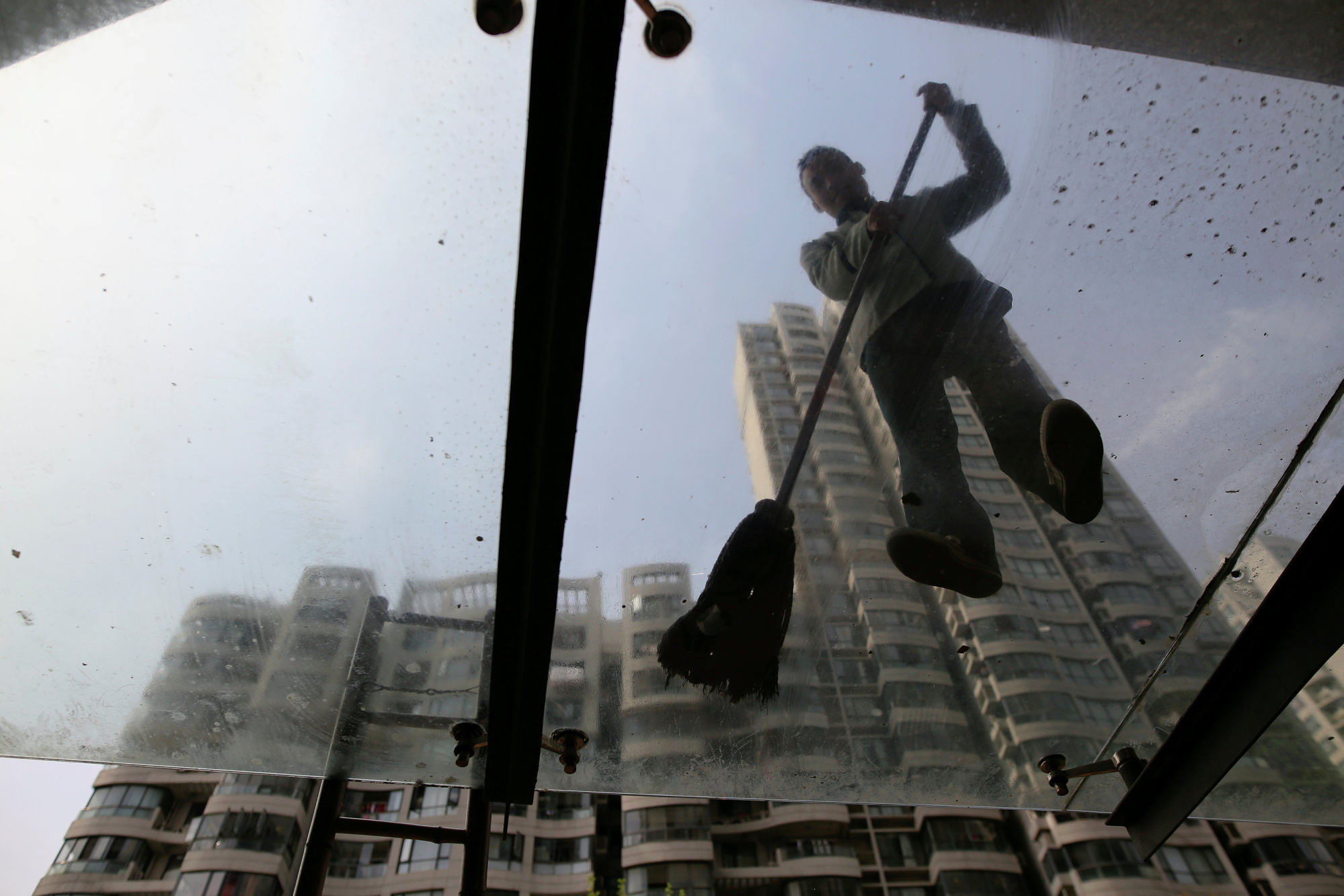
Why Chinese property management companies are losing favour with money managers
- Shares of most Chinese property management firms, once a darling of investors, have been beaten down in recent months as the woes of their parent companies spill over
- Property managers are being used as a financial tool by distressed developers to bail them out of sticky situations, JPMorgan says
Investors in Chinese property management companies, worried that their embattled real estate parent companies are using them as a bailout fund, are abandoning the once red-hot sector in droves.
A-Living Services, the nation’s second-largest operator and a unit of Guangzhou-based Agile Group, has plunged 35 per cent in the past month in Hong Kong. Country Garden Services, the next biggest peer, has slumped 18 per cent in the same period.
Shimao Services has suffered the worst sell-off. The stock has lost 57 per cent of its market value during the same stretch, including a 32 per cent slump on Tuesday, after buying a Shanghai-based services company from its parent Shimao Group for 1.65 billion yuan (US$259 million).
“This connected party transaction not only implies tight liquidity conditions for Shimao, but is also a corporate governance red flag as it is essentially transferring the cash from property manager to developer level,” JPMorgan said in a note to clients. Property managers were being used to partially bail out troubled developers, it added.

Chinese property management companies have been sought after by investors since early 2020 as the equity market recognised the industry’s recurring income and potential for growth. With supportive policies from Beijing, there was a surge of capital into the industry.
China’s property managers are expected to oversee a gross floor area in excess of 33 billion square metres, about 30 times the size of Hong Kong, by 2030, according to Pingan Securities.
At its height, 18 Chinese property managers, most of them spun off from their parent developers, went public in 2020, nearly double that in 2019 and four times that in 2018. Their market capitalisation had surged 42 per cent on average this year by the end of June, according to Everbright Securities.
Beijing’s “three red lines” policy to control leverage in the property industry since August 2020 has shut indebted developers out of the domestic loan market, an important source of liquidity. As a result, some developers have since defaulted on their offshore bonds following the cash crunch.
Sichuan Languang, Fantasia Holdings, Modern Land, China Evergrande Group and Kaisa Group are among the developers that have missed repayments on their debts to local and offshore creditors.
To raise money, embattled developers are turning to their property management units. Some like Modern Land have sold their stake in such units, while others have opted to sell the core asset of their property management units.
Cash-strapped China Aoyuan, for example, said in November that it was in preliminary discussions with several independent third parties regarding the possible disposal of certain divisions in its property management subsidiary known as Aoyuan Healthy Life Group.
However, the proposed move raised the ire of Aoyuan Healthy Life’s investors, as it would have left the services unit without its core assets. Infini Capital, the second-largest shareholder of Aoyuan Healthy, last month said it would rather see the entire company sold instead of being stripped of its jewel.
“We believe the best way forward for the company would be to run a transparent and competitive auction process so as to fully realise the embedded value of the business,” the investor said.

Fantasia Group, founded by Zeng Jie, the niece of former vice-president Zeng Qinghong, sold the main business of Color Life Services Group, its property services division. Country Garden Services offered to buy that business for 3.3 billion yuan. Color Life’s stock crashed by more than half on the news.
Bo Wenxi, chief economist at wealth management firm IPG China, said that distressed real estate companies were offloading assets that have “relatively strong liquidity capabilities” to extricate themselves from sticky situations.
JPMorgan said that in the case of property managers where their parents are already in distress, the more likely scenarios are either the sale of the entire stake or disposal of core assets. However, the share price reaction could be extreme in those two situations, it added.
“If the former, the share price can be positive due to premium in a general offer,” the US bank said. “If the latter, the share price will be negative as the cash raised is likely to be used by the developer” instead of for mergers and acquisitions, it added.

